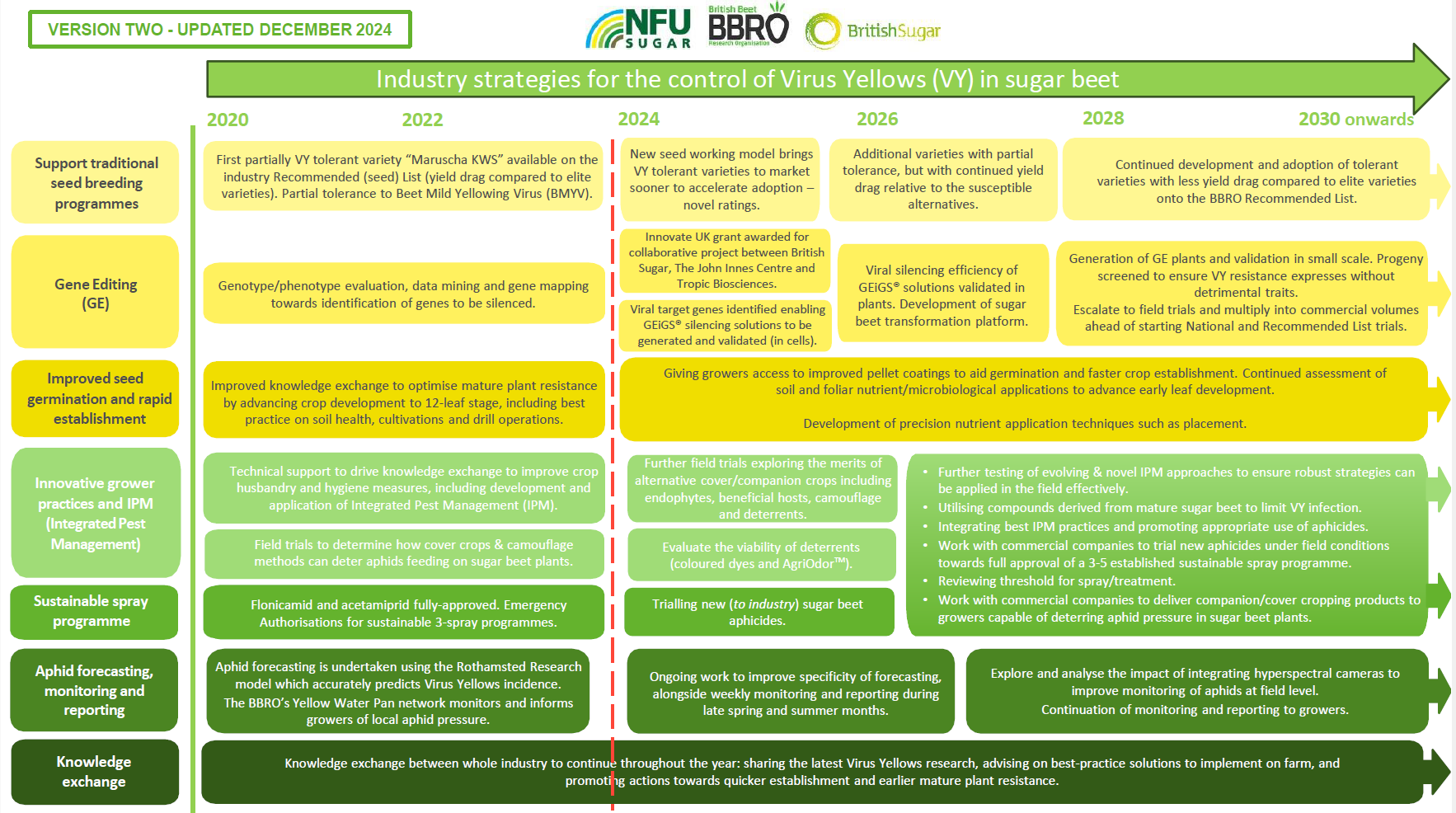Overseen by the Virus Yellows Taskforce, and spearheaded by the BBRO (British Beet Research Organisation), its various workstreams are at the cutting-edge of world discovery into novel VY (Virus Yellows) controls.
Virus Yellows
Virus Yellows disease represents the number one threat to the UK sugar beet industry. A complex of three distinct viruses spread by aphids, it is extremely difficult to control, particularly during the early stages of germination when plants are most vulnerable to aphid attack.
One strain of VY alone, BYV, can cause yield losses of up to 50% in the event of infection. Furthermore, warmer and wetter winters, as a result of climate change, are providing ideal breeding conditions for aphids through the winter months, enabling earlier spread and infection through spring-sown sugar beet crops.
An integrated approach
The Virus Yellows Pathway illustrates the stacked solutions explored by the industry to deliver long-term, sustainable protection of the UK sugar beet crop against Virus Yellows.
“Recent VY disease pressures have caused crop losses of up to 80%, which has put farm businesses under huge pressure, at a time when the sector is already struggling with high production costs, extreme weather and the transition to ELMs.”
NFU Sugar Board chair Michael Sly
It charts our progress and future ambitions for resistant seed varieties, gene editing, improved seed germination, Integrated Pest Management, next-generation sustainable sprays, aphid forecasting, monitoring and reporting, and knowledge exchange.
The Virus Yellows Pathway
Going further, faster
The industry’s Virus Yellows Resilience Package is asking for support from government for some of the most promising trials within the Virus Yellows Pathway in order to expedite grower access to long-term, sustainable virus controls on-farm.

